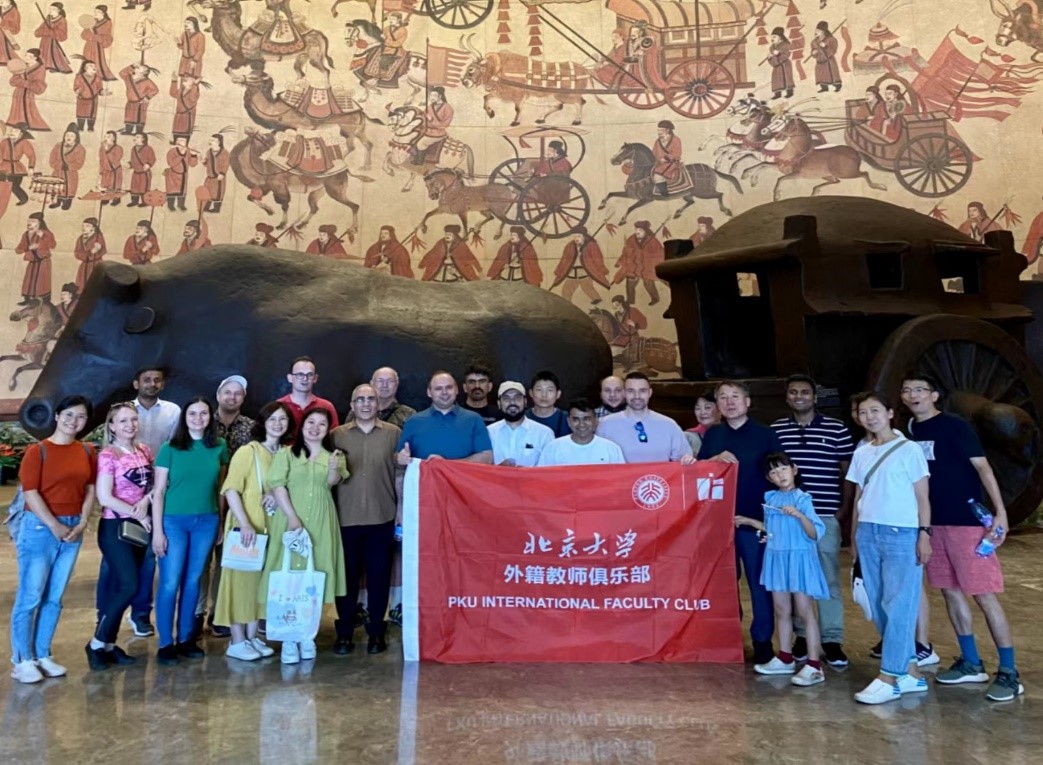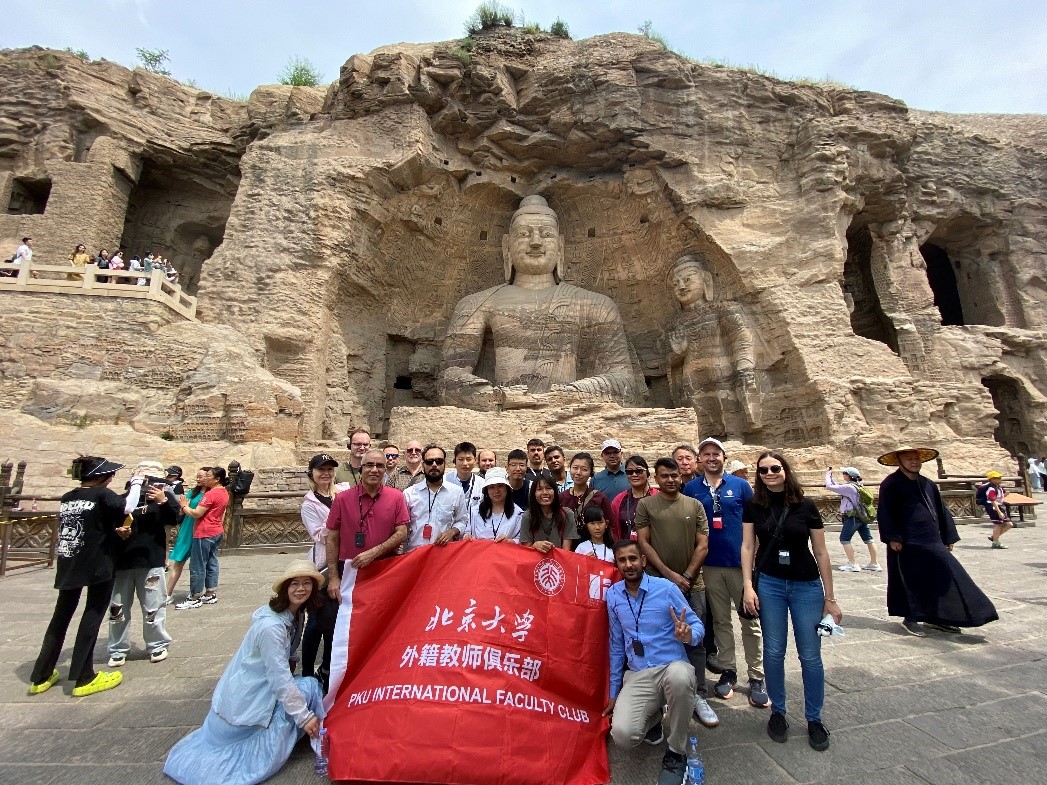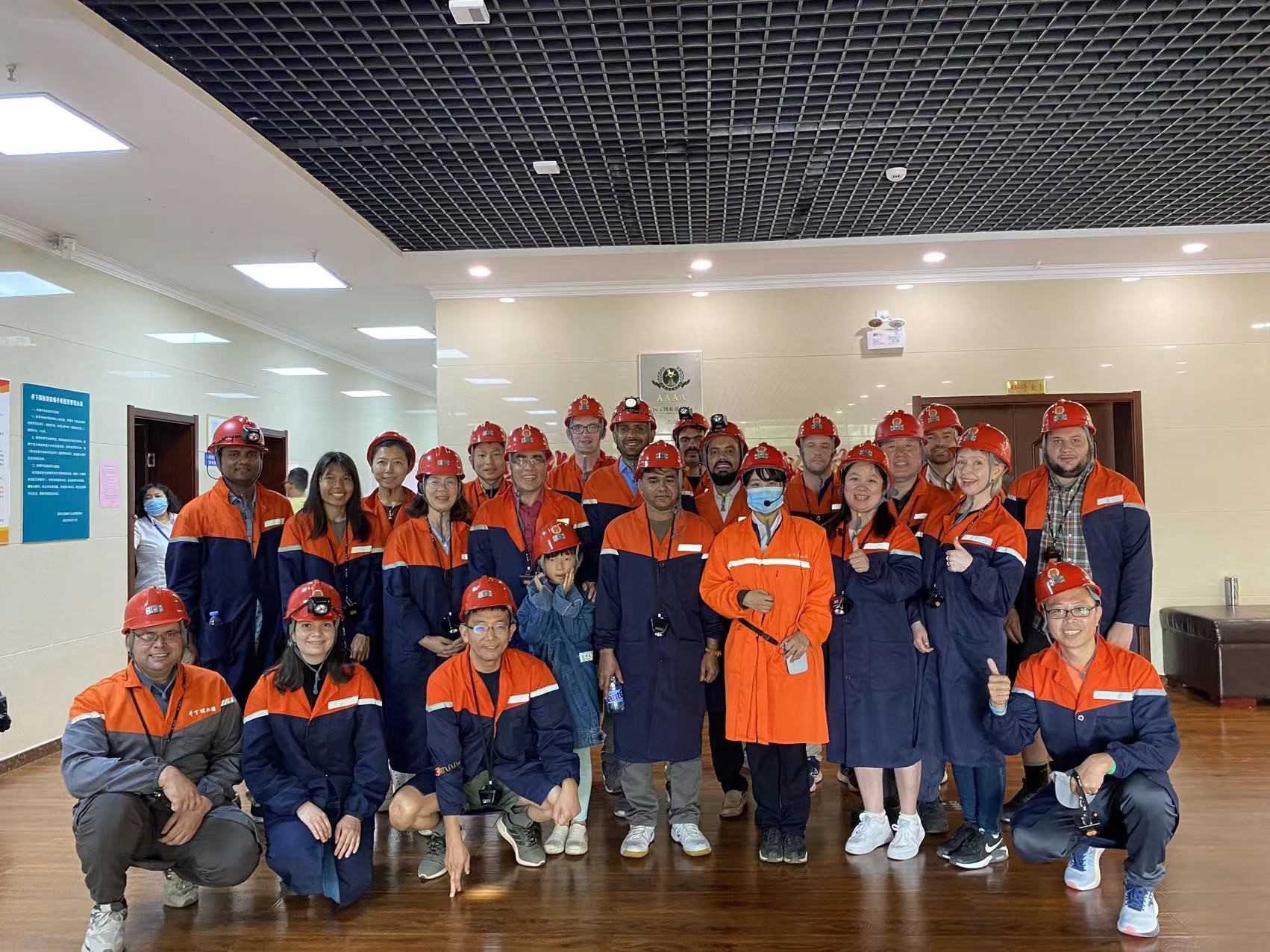During the Dragon Boat Festival, Peking University International Faculty Club organized a themed event entitled "Beauty of Chinese History and Culture – Explore Datong, Shanxi". Over 20 international faculty members representing 15 departments were invited to experience the Chinese history, traditional culture and magnificent arts.
Datong's history spans over 2,000 years. It was the capital of the Northern Wei Dynasty, the co-capital of the Liao and Jin Dynasties, and a significant town during the Ming and Qing Dynasties. It is also a melting pot of ethnic groups, including Hui and Han, and is home to an abundance of ancient treasures. The international faculty visited places such as the Yungang Grottoes, Huayan Temple, Hanging Temple, Nine Dragon Wall, Datong Ancient City, and Datong Museum, etc. They were astonished by the city's extensive history and diverse cultural attributes, and marveled at the perfect integration of architecture and natural environment, as well as the stunning portrayal of history and art. Among them, the Yungang Grottoes, as a treasure trove of world sculpture, boasts magnificent sculptures with vivid and colorful elements. The Hanging Temple is reminiscent of a fairy world, allowing visitors to appreciate the serene and carefree ambience. As night falls, the lights illuminate the towering and ancient city walls, moat, and ancient temples within Datong city, which reflect a charming and enchanting scenery.


Datong is also famous for having been the former coal capital. At the beginning of the 20th century, Datong became an important base for China's coal industry and made significant contributions to the country's economic development. In the Datong Coal Museum, the international faculty went more than 300 meters underground to learn about the formation, mining, utilization, and industrialization of coal. They truly experienced the life of miners and appreciated the breadth and depth of coal culture.

This trip to explore Datong left a deep impression on the international faculty. Bahador Bagheri(School of Foreign Languages): “Seeing the beautiful and astonishing Buddhist temples and caves, the amazing wall surrounding the city and the coal mine, increased my wonder and sense of deep respect for the greatness, perseverance, love and elegance of the Chinese people and their industrial and artistic achievements.” Ryuichi Shindou(School of Physics): “I as well as my family enjoyed learning the history of Datong. I like Datong and Shanxi province, and will visit this area again for further exploration.” Ng Jia Yi(College of Environmental Sciences and Engineering): “I didn’t even know this city until this trip, and I learnt a lot about the important role it played in Chinese history.” Sean Tyson Heath(Department of History): “Thank you for the great trip! It was perfectly organized and a real pleasure to meet and spend time with such a lovely group of people.” Mansoor Ahmed Koondhar(School of Advanced Agricultural Sciences): “It was an enriching experience where I gained a deeper understanding of city development, architecture, and environmental control. The history behind the Great Buddhas, Hanging Temple, and city wall also left a lasting impression on me.”
